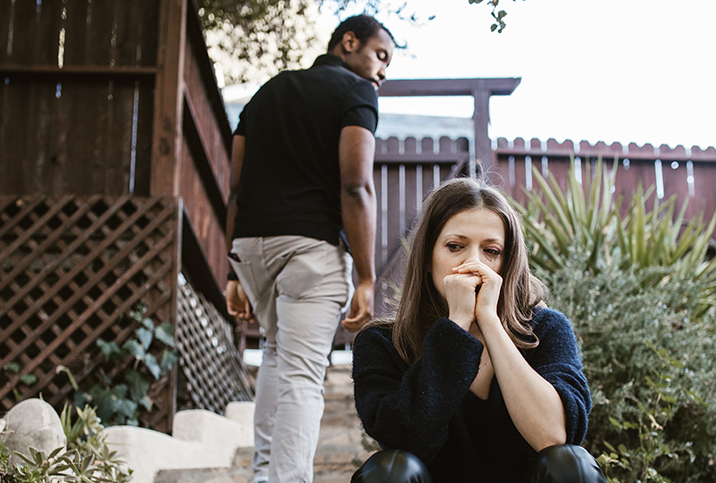Fighting Fairly: How Happy Couples Argue Without Breaking Up

Every couple argues, but when one or both partners start name-calling, taking cheap shots or dredging up ancient history, then the argument will likely move from a rational discussion to a mudslinging free-for-all. That's fightin' dirty.
Instead of turning your back on your partner and heading for the door, keep it clean by learning how to fight fairly. Here are some recommendations that will leave partners still talking to each other even after arguments.
Choose the right moment
If your partner is not a morning person, don't hit them with an argument the second they wake up. Likewise, if they just got home from a stressful day, it might not be the best time to bring up a heavy conversation. While you can't always choose the perfect time to fight, allow your partner to engage in discussion when they're at their best rather than their worst. They'll have a better opportunity to fully listen to your perspective and formulate a thoughtful response.
When possible, offer your partner a heads-up about the discussion you'd like to have. No one likes getting caught off-guard. Preface your discussion by giving your partner an element of choice to show respect and help start off on the right foot. Say something like, "I'd like to talk to you about XYZ before the end of the day. Is now a good time, or should we wait until after you get back from the gym?"
Chris Reid from Kid 'n Play opens up about how he deals with conflict in his relationships. Watch the full interview here.
Keep it private
Never fight in front of your friends or family members, or out in public. If you can stick to this rule, you'll be doing everyone a favor. Arguing with your spouse in front of your friends creates an uncomfortable situation where people may feel the need to take sides or intervene. You don't want to expose details that may be embarrassing or demeaning. You also don't want to paint your spouse in a bad light while also likely making yourself look bad.
It's never a good idea to fight in front of your children if you can help it. Children are observant and will pick up on how their parents argue. Your bad habits can quickly become their bad habits and impact their own relationships later in life. Always maintain a baseline level of respect for your partner, especially in front of your children. Keeping a respectful tone helps protect a stable home environment and teaches kids the right way to treat others.
Set a timer
Try not to drag out arguments or rehash the same issues over and over. If you feel like a broken record, or the conversation is going in circles, put it aside. It's not worth spending an entire day fighting with your partner about one issue on which you may never agree. Limit your arguments to an isolated conversation and move forward with the rest of your day, focusing on what brings you together rather than what pulls you apart.
It's unlikely you'll go through a long-term relationship without disagreeing from time to time. Even making the best case for your point might not change the other person's mind, but both sides should have ample time to make their case. Eventually, though, you have to agree to disagree and find a way to live in harmony despite your differences if you want a successful, functioning relationship.
Recognize when to seek help
Even if minor spats happen often, don't take this as a sign that you're with the wrong person. If your arguments include belittling, insulting or attacking the other person, you should seek counseling to find more effective communication strategies. For challenging issues that drive a wedge in your relationship, a therapist can offer a new perspective and help you come up with a resolution together.
Verbal disagreements are unavoidable in a trusted and intimate relationship, but verbal abuse and physical violence are never acceptable. If you and your partner aren't able to address differences without escalating to a harmful or dangerous level, you should separate and get professional help before continuing the relationship. In the event of verbal or physical abuse, though, don't seek relationship counseling; your priority is your mental and physical well-being and you should get out of that unhealthy relationship right away.















